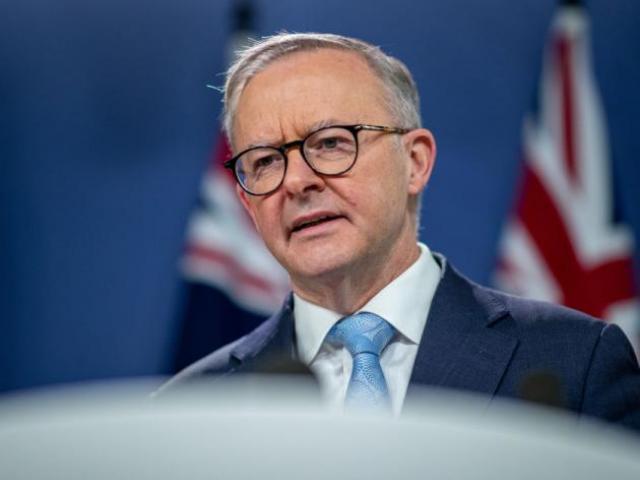
While it has not been raised due to one specific incident, it's understood there have been eight incidents in Australia investigated by security officials for alleged terrorism or possible terrorist links.
The conflict in the Middle East is also understood to have exacerbated concerns by security agencies about politically motivated violence in Australia, although it is not the direct cause of the threat level rising.
It's the first time the threat level has been raised since 2014 during the height of threats from terrorist group Islamic State.
Prime Minister Anthony Albanese said the national security committee met on Monday morning to discuss the change.
"Probable does not mean inevitable and it does not mean there is intelligence about an imminent threat or danger but the advice that we've received is that more Australians are embracing a more diverse range of extreme ideologies," he told reporters in Canberra.
"Governments around the world are concerned about youth radicalisation, online radicalisation and the rise of new mixed ideologies."
ASIO director-general Mike Burgess said more Australians were embracing more extreme ideologies and using violence to achieve their cause.
"Politically motivated violence now joins espionage and foreign interference as our principal security concerns," he said.
"Unfortunately, here and overseas, we are seeing spikes in political polarisation and intolerance and civil debate and unpeaceful protests."
Mr Burgess said anti-authority beliefs were also growing along with a decline in trust in democratic institutions.
"This trend increased during Covid, gained further momentum after the terrorist attacks in Israel and accelerated during Israel's military response," he said.
"The (Middle East) conflict has fuelled grievances, promoted protest, exacerbated division undermined social cohesion and elevated intolerance."
There were also concerns of multiple extremist beliefs being combined to create hybrid ideologies.
The director-general said lone actors were the most likely style of terror attack, often using rudimentary weapons in a crowded or public place.
Mr Burgess also noted that a large number of young people were being radicalised.
"Extremist ideologies, conspiracies, misinformation are flourishing in the online ecosystem and young Australians are particularly vulnerable," he said.












